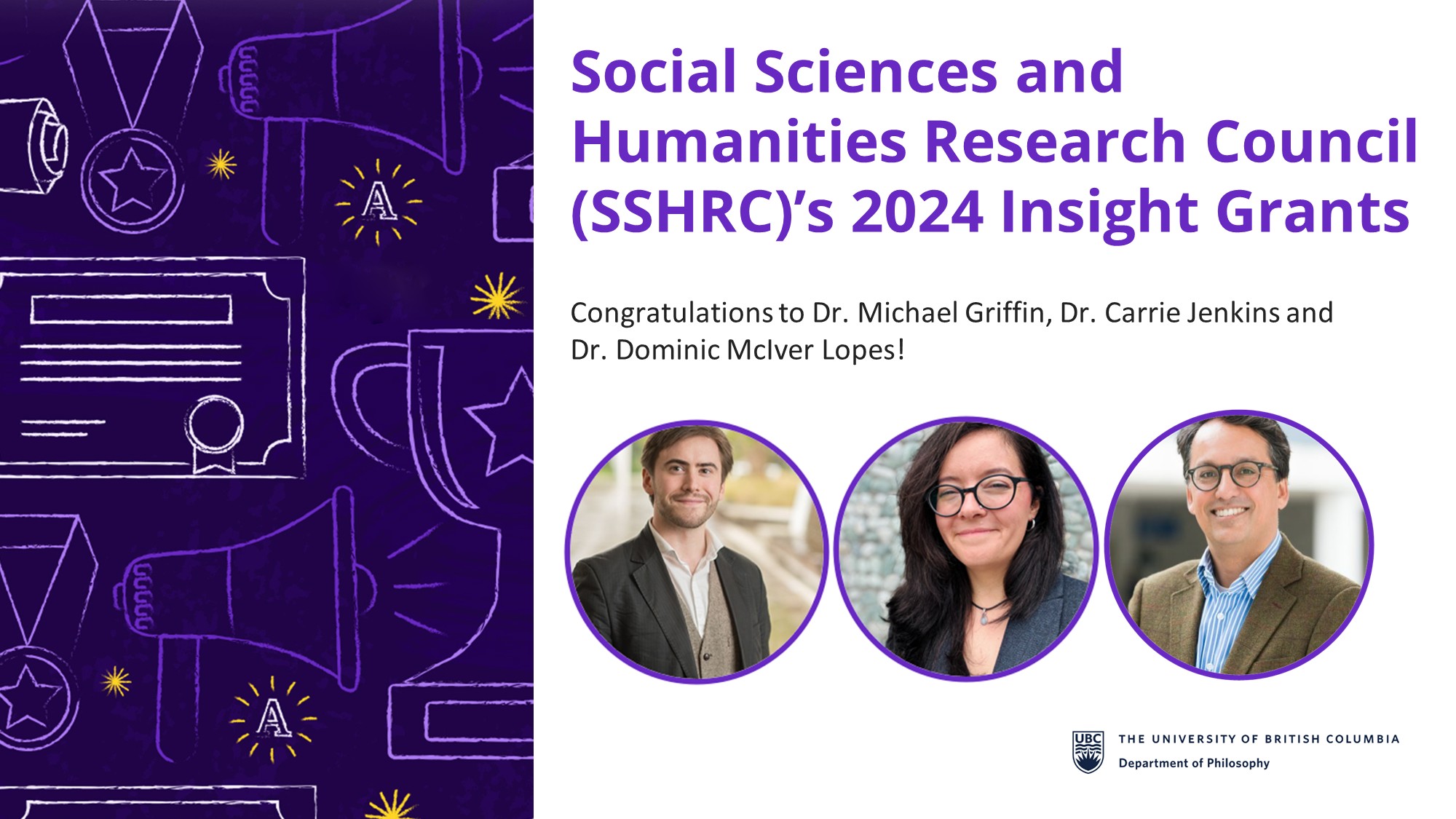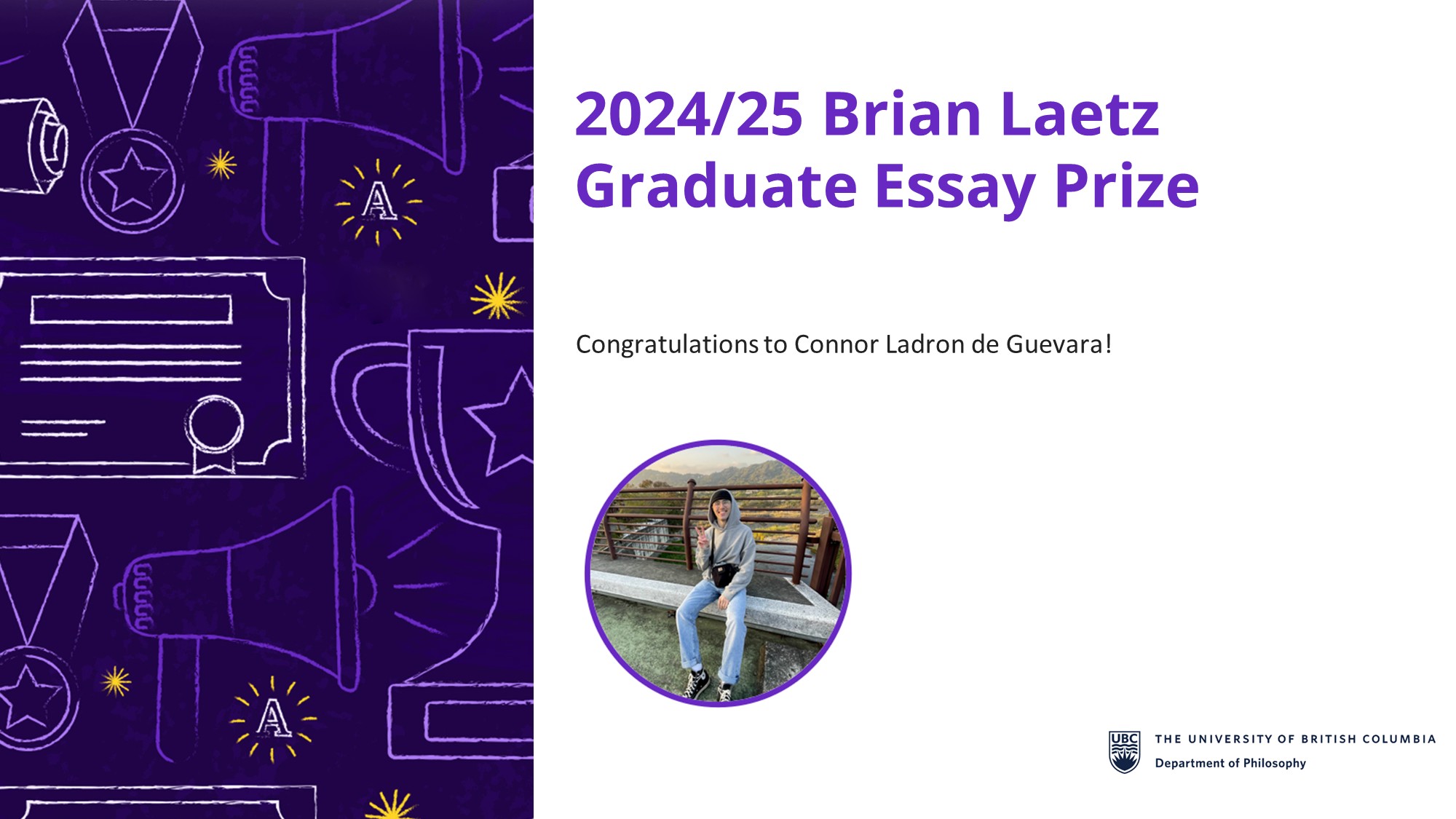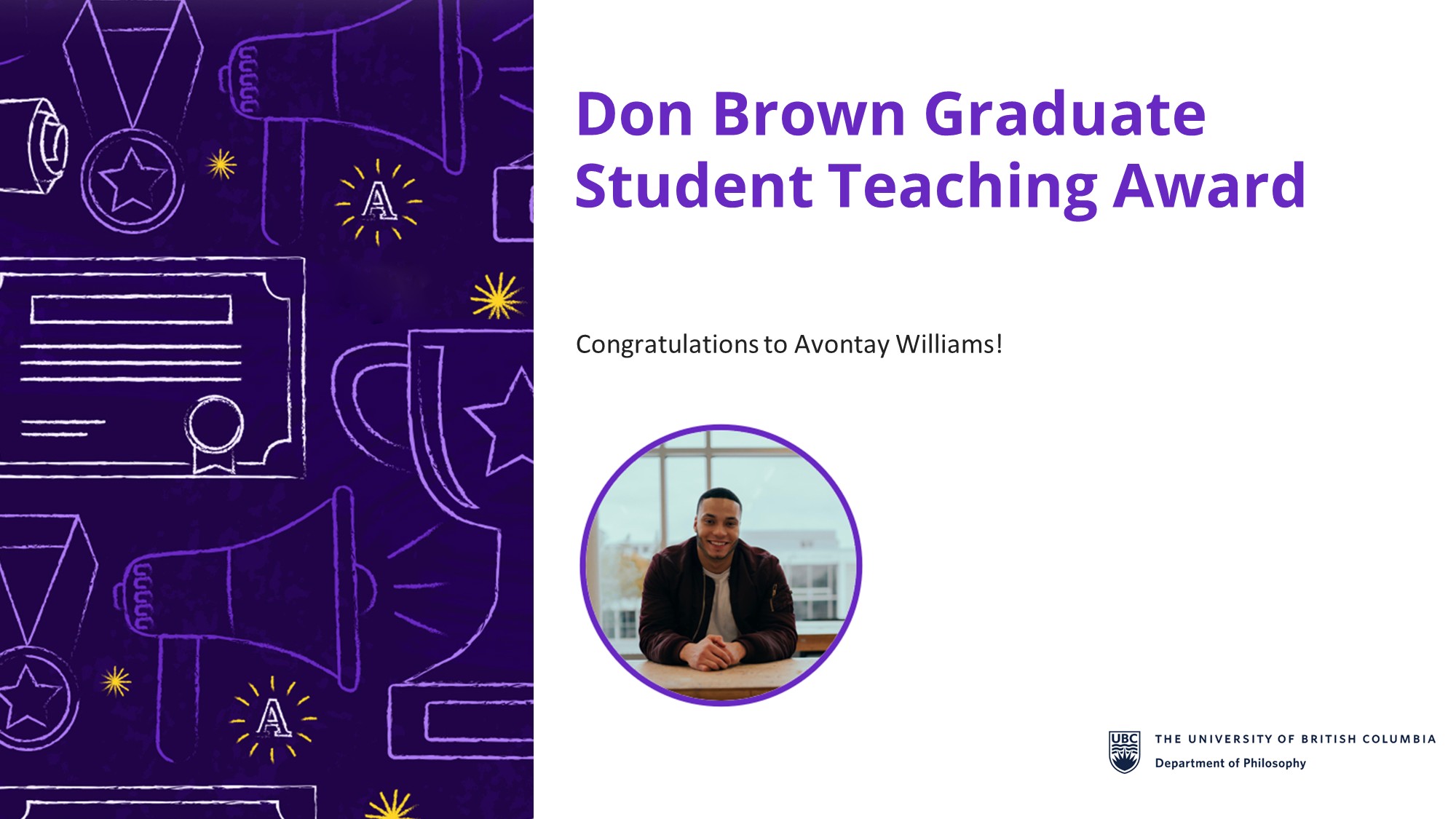Donald G. Brown, one of Canada’s most distinguished philosophers, passed away at the age of 89 on July 18, 2016. Don was educated at UBC (B.A., honours philosophy, 1947), Corpus Christi College, Oxford, which he entered as a commoner with senior status in 1948, became a Scholar of Corpus in 1949, and attained his B.A. with a first in P.P.E. in 1950. In 1951 Don was a Senior Demy of Magdalen College, then in 1952 a Fellow by Examination of Magdalen, and received his M.A. and D. Phil in 1955. His dissertation, written under Richard Hare, was “Practical Reason: A study in the logic of theory and practice.” His examiners were H. L. A. Hart and J. D. Mabbott. Don joined the Philosophy Department at UBC in 1955 as an Assistant Professor, took a leave of absence in 1958-59 to teach at Magdalen, then came to UBC where he remained until his retirement as Full Professor in 1985.
Don’s primary philosophic interests were in the nature of inference and practical reason, action, and ethics, with a specialty in J. S. Mill. Major publications include “What the Tortoise Taught Us” (Mind, 1954), “The Nature of Inference” (Phil Rev. 1955), Action (U of Toronto Press, 1968), “Mill on Liberty and Morality” (Phil Rev. 1972), and “Mill’s Moral Theory: Ongoing Revisionism” (PPE politics, philosophy & economics, 2010). In retirement he read voraciously and widely, almost as if comps were coming up. He never met a philosophic problem he did not like (except, he once confessed, ones in aesthetics), and he pursued those he came across with vigor and determination. He also wrote until about a year before his death, and has an article on Mill’s harm principle in press.
Don also was remarkable for how seriously he took his teaching, and the time and energy he devoted to it. The resulting influence he had on students was enormous. He had the ability to make philosophic problems sound interesting and important, gave model lectures (and was even better in discussion), and lavished attention on us. The comments he put on our work were unsurpassed, and he was unfailingly helpful, encouraging, and accessible. All his students had his home phone number and an invitation to call. The evaluations he received would make an immodest person blush.
Don had non-philosophic interests too. He liked chamber music, jazz, plays, literature and poetry (Phillip Larkin along with Yeats and Hardy were among his favourites), swimming, and sunbathing, and took a lively interest in science and politics and human affairs generally. He also had a practical bent. He taught in and was a staunch advocate of Arts I, was a moving spirit in developing an experimental free school for primary grades, and was one of the founders (along with Bob Rowan and Reg Robson of UBC) of the B.C. Civil Liberties Association which is now a force for social change to be reckoned with, and served on the ethics committee of Vancouver General Hospital.
He leaves a daughter Claire Zaslove and grandchildren Max and Jessica in Seattle, his partner of 18 years, Monica Robson in Vancouver, and many former students, colleagues, friends, and acquaintances who remember him with affection, gratitude, and admiration.


